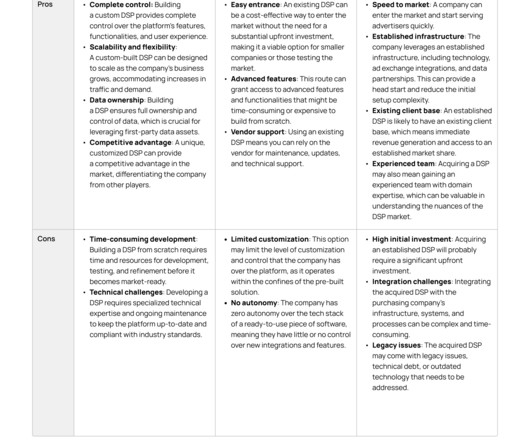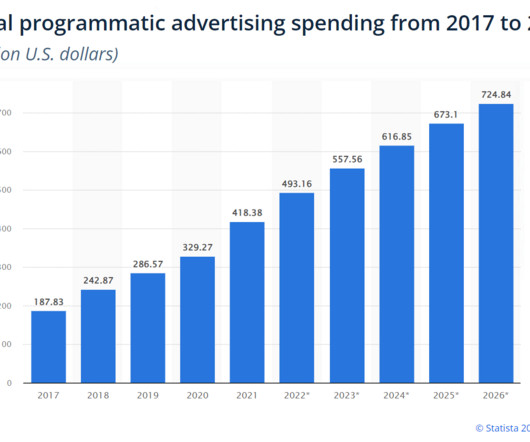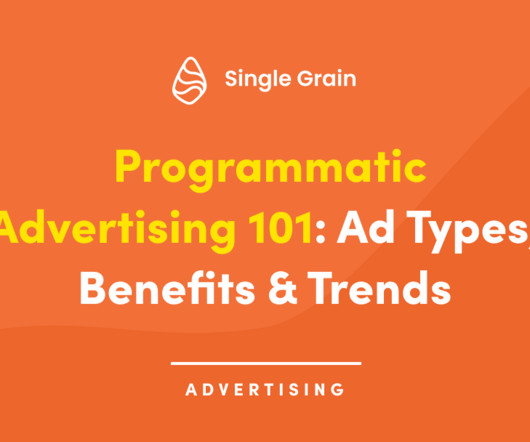Why we care about adtech: The complete guide
Martech
MARCH 15, 2022
Advertisers are willing to invest in adtech for its ability to attract a target audience and generate strong insights. The pending loss of third-party cookies means contextual advertising will become more important than in the past and adtech is essential to marketers who are looking for ways to access customers through contextual data.












Let's personalize your content